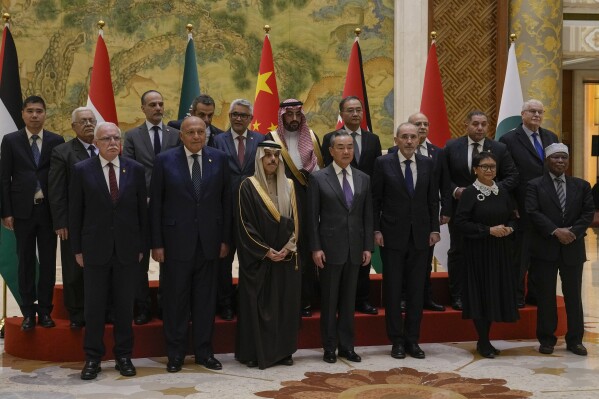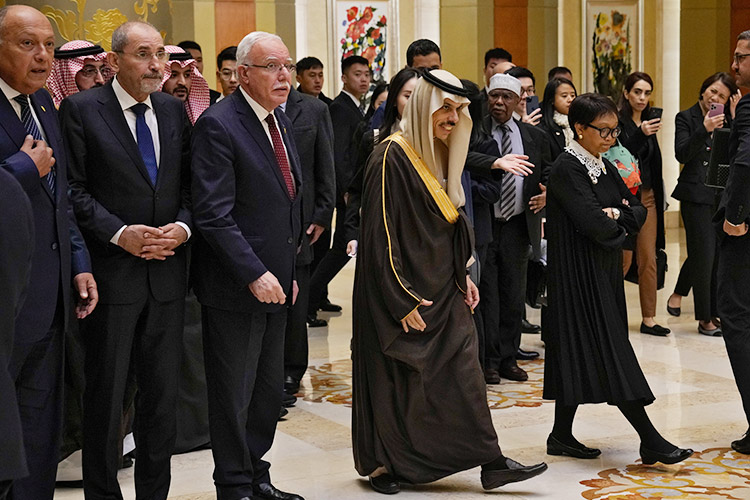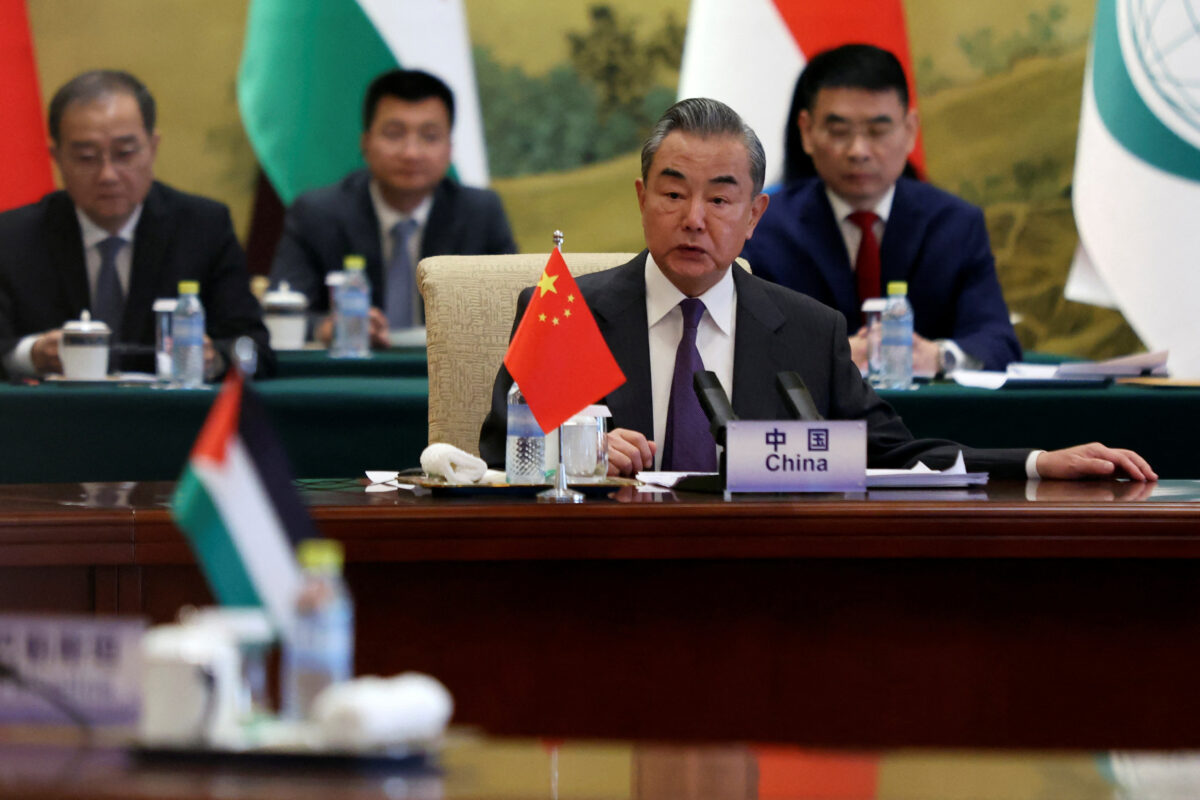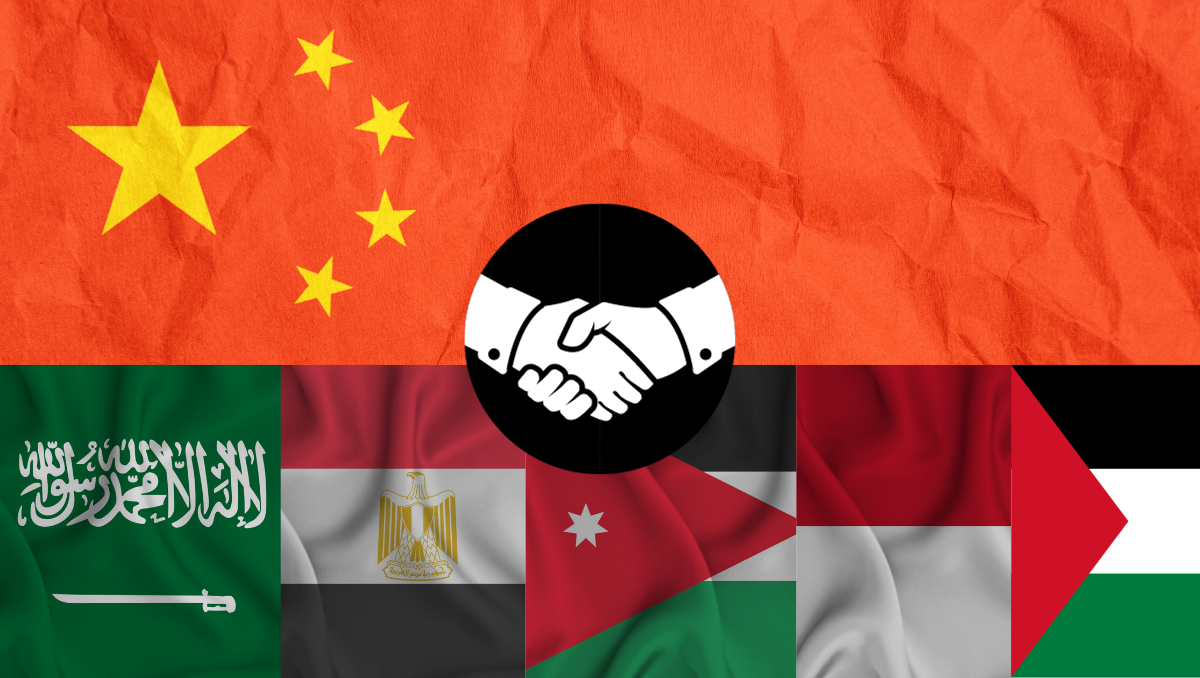A delegation of Foreign Ministers from the Arab and Muslim nations arrived in China to deliberate on the ongoing conflict between Israel and Palestine. The top diplomats called for cooperation and an immediate cease-fire in Gaza to stop the war from creating more loss.

Table of Contents
China Hosts Top Diplomats
China’s Foreign Minister Wang Yi on Monday welcomed top diplomats from Arab and Muslim nations as Beijing hosted a significant meeting between the leaders during a time of tension in the world. The visit to China is the first among the tours to all permanent members of the United Nations. The visits are pivotal, considering the current geopolitical situation in Palestine.
Beijing reaffirmed its support for the Palestine cause. Foreign Minister Wang Yi said that China would work with “our brothers and sisters” in the Muslim and Arab nations to end the war at the quickest pace possible. From the perspective of international influence, the action of the Arab and Muslim diplomats to choose China as the first stop of their tours signifies the growing Chinese influence in geopolitics.
Minister Wang Yi said that China is a good friend and brother to Muslim and Arab nations and that Beijing has always supported the legitimate cause of its people to restore their national rights and interests. China hopes for a two-state solution and a quick settlement of the issues in Palestine. After the end of China’s almost three years of COVID lockdowns, Chinese President Xi Jinping commenced a diplomatic push that aims to counter the United States and its allies, whom President Xi says seek to contain and suppress Beijing.
Nations in attendance
- Saudi Arabia, represented by Foreign Minister Prince Faisal bin Farhan Al Saud
- Jordan, represented by Foreign Minister and Deputy Prime Minister Ayman Safadi
- Egypt, represented by Foreign Minister Sameh Shoukry
- Palestine, represented by Foreign Minister Riyad Al-Maliki
- The Organisation of Islamic Cooperation, represented by Secretary-General Hissein Brahim Taha
- Indonesia, represented by Foreign Minister Riyad Al-Maliki

Delegates call for immediate cease-fire
The Foreign ministers from Saudi Arabia, Jordan, Egypt, the Palestinian Authority, Indonesia, and China stressed for an immediate cease-fire in the Gaza Strip and allowing humanitarian aid into the conflict-affected regions. The meeting focused on the aim of lasting peace in the vulnerable areas.
Saudi Arabia’s Foreign Minister, Prince Faisal bin Farhan Al Saud, said that the intention is to send a clear signal and to act immediately to stop the atrocities and deliver humanitarian supplies to the Gaza region. Saudi Arabia intends to press the US and Israel for an end to the aggression in Gaza. Crown Prince Mohammed bin Salman assembled Arab and Muslim leaders to reinforce that message.
Sameh Shoukry, the Egyptian foreign minister, said that Egypt looks forward to great powers like China playing a stronger role in stopping the aggression against the Palestinians in Gaza. Minister Shoukry pointed out that there are powerful nations that lend their support to the Israeli attacks.
Chinese Foreign Minister Wang Yi said that Beijing will continue to strengthen cooperation with Arab and Islamic nations and, being the rotating president of the Security Council, will push for meaningful actions to remedy the situation in Gaza. Minister Yi added that China will continue to create active efforts to advocate peace and stability between Palestine-Israel and the Middle East.
The growing Chinese influence
China, the world’s second-largest economy after the US, is growing significantly yet cautiously in the spectrum of international affairs. The Belt and Road initiative, brokering to reestablish broken ties between Saudi and Iran, and the decision of the Arab and Muslim diplomats to start their tours from Beijing shows the growing influence of Beijing in the world order. Foreign Minister of China Wang Yi told the visiting diplomats that the decision to commence in Beijing displays the high level of trust the nations had in China.
The growing influence of China in world affairs might hit other powerful nations as a matter of concern as the role Beijing currently plays in the issue of the Israel-Palestine war allows them to close the gap in the relationship between the Middle Eastern nations. It is clear that the White House is monitoring the developments made by China in international affairs. President Biden and Xi met in California the past week to discuss cooperation among the two nations.




